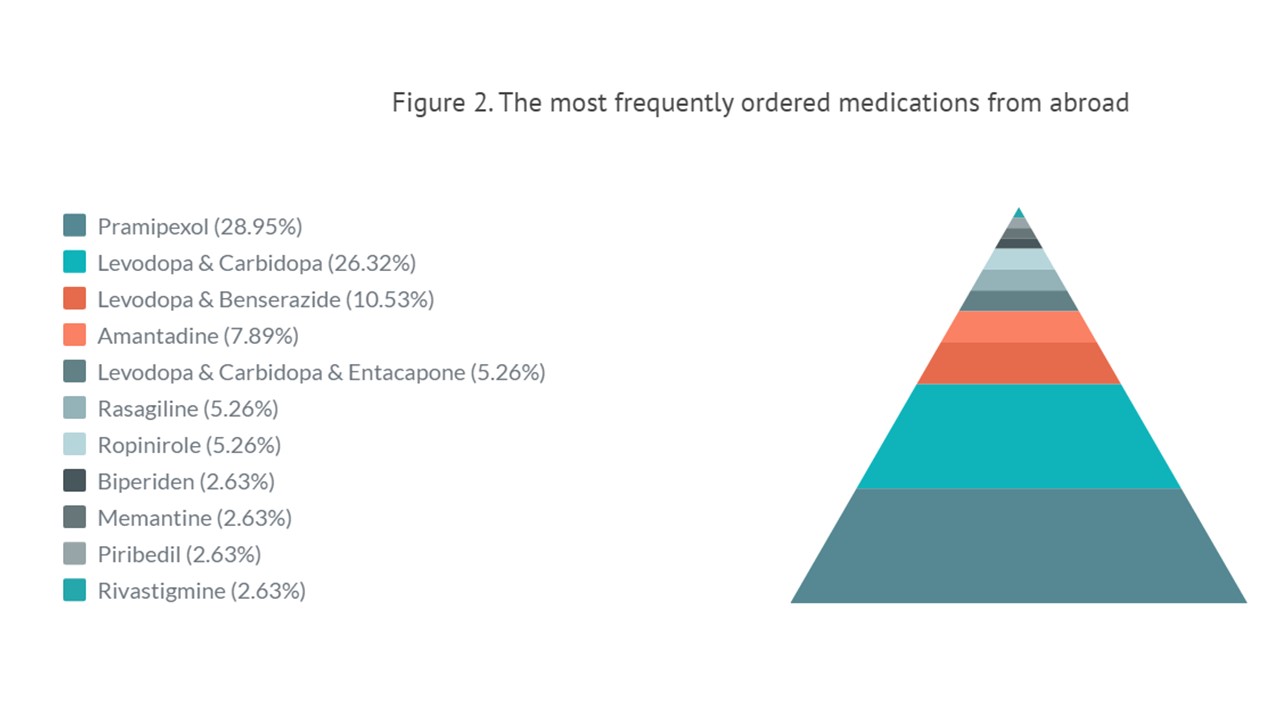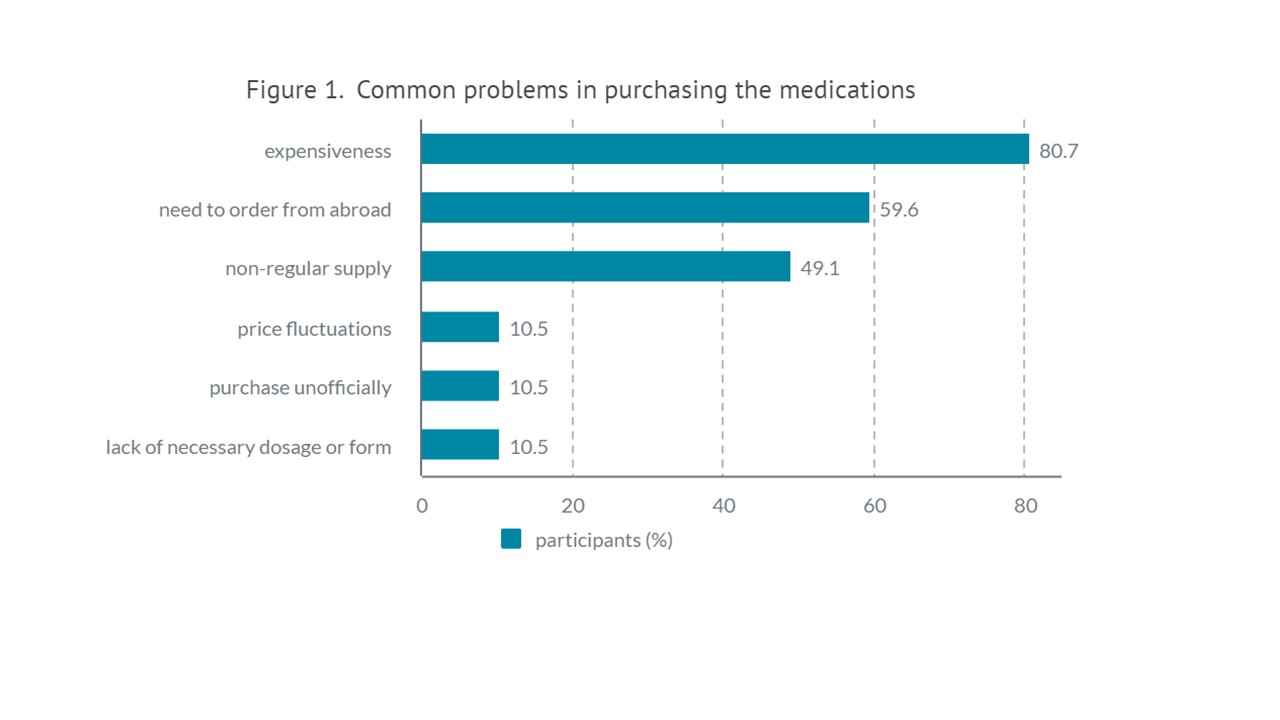Category: Other
Objective: The aim of the study was to assess the availability and accessibility of medicines for patients with Parkinson’s disease (PD) in Kyrgyzstan.
Background: After 30 years of independence and numerous reforms in healthcare, the structure of neurological service remains underdeveloped for majority of chronic neurological disorders, where PD is one of the top well-known diseases. Among all antiparkinson medications (APM), only one form of Levodopa & Carbidopa 250 mg is registered officially in the country. According to current health policies, none of APM are covered by insurance or other social support.
Method: Data on the availability and accessibility of treatment was collected from 57 PD patients both from public and private clinics via survey. Participants received a survey in Kyrgyz or Russian languages.
Results: Mean age was 55.7 ± 9.8, where 66.7% were urban population. 17.5% stated they were employed, while 19.3% received a disability pension. 89.5% indicated a monthly income below 114 USD. Around half were diagnosed with PD less than 5 years ago, 36.8% – 6-10 years ago, and 12.3% – over 10 years ago. The most commonly used APM were Levodopa (86%) as monotherapy and combined therapy.
Expensiveness, need to order from abroad, and non-regular supply were indicated as common problems in acquiring APM (Figure 1). Limited supply forces to find various ways for purchasing APM: from abroad, from unofficial sources, etc. 49.1% ordered from Russia, less from Kazakhstan, Turkey, and India. Figure 2 shows the most frequently ordered APM from abroad, including dementia treatment. Problems of availability and affordability of APM lead to interruptions and pauses in treatment (42.1%) and limitations in treatment (38.6%). Respondents frequently used medications for following non-motor symptoms: constipation (49.1%), sleep disorder (40.4%), pain (26.3%), depression and anxiety (15.8%), urinary dysfunction (14%), hallucinations, and psychosis (5.3%). 57.9% indicated they were hospitalized 1-2 times during last year.
Conclusion: Though only one APM is registered in Kyrgyzstan, the patients used almost a full spectrum of APM. However, the major problem is caused by lack of registration of APM, affordability due to low income, and lack of proper social and financial support from the government. There is an urgent need for the development of health policies addressing problems of PD patients in Kyrgyzstan.
To cite this abstract in AMA style:
C. Shambetova. Availability and accessibility of medicines for patients with Parkinson’s disease in Kyrgyzstan [abstract]. Mov Disord. 2022; 37 (suppl 2). https://www.mdsabstracts.org/abstract/availability-and-accessibility-of-medicines-for-patients-with-parkinsons-disease-in-kyrgyzstan/. Accessed April 4, 2025.« Back to 2022 International Congress
MDS Abstracts - https://www.mdsabstracts.org/abstract/availability-and-accessibility-of-medicines-for-patients-with-parkinsons-disease-in-kyrgyzstan/


